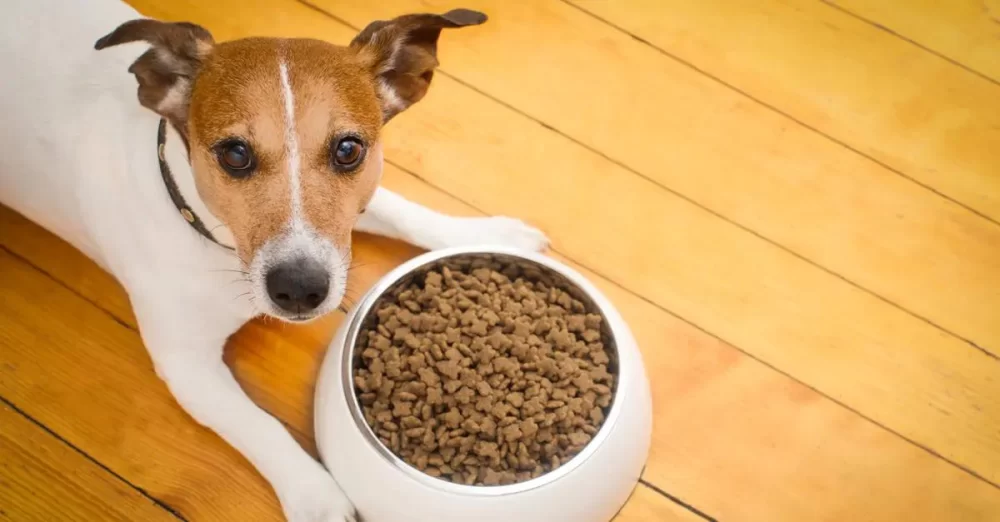Understanding Sensitive Stomachs in Dogs
As a dog owner, it's heartbreaking to see your furry companion struggle with digestive issues. Whether it’s vomiting, diarrhea, or simply a lack of appetite, a sensitive stomach can be a real challenge. Over the years, I’ve learned that choosing the right food for a dog with a sensitive stomach is not just about finding something that won’t upset their tummy; it’s about providing them with nourishment that aids their overall health and well-being. If your dog is experiencing gastrointestinal issues, finding the best dog food for sensitive stomachs becomes a critical task. In this article, I’ll share some of the top choices and my personal experience with them.
Why Does My Dog Have a Sensitive Stomach?
Before diving into the best food options, let’s first understand why some dogs have sensitive stomachs. There are several factors that could contribute to digestive distress in dogs:
- Food Sensitivities: Some dogs are simply sensitive to certain ingredients, such as grains, chicken, or beef.
- Food Allergies: A more serious form of sensitivity, food allergies can lead to more severe symptoms like skin irritation, itching, or ear infections in addition to gastrointestinal upset.
- Stress and Anxiety: Dogs can experience digestive issues related to stress, whether from a change in environment, routine, or even a new addition to the household.
- Age: As dogs get older, their digestive system may not work as efficiently as it once did, making them more prone to tummy troubles.
Understanding the root cause of your dog’s sensitive stomach is important for choosing the right food. For example, if your dog has food allergies, you’ll need a food that is specifically designed for that issue, whereas stress-related digestive problems might require a calming formula. The right food can make a world of difference in how your dog feels and digests their meals.
Top Dog Food Choices for Sensitive Stomachs
Now that we understand why some dogs have sensitive stomachs, let’s take a look at some of the best dog food options I’ve personally found to help alleviate digestive issues. These foods are formulated with easily digestible ingredients and are designed to support overall gut health. Let’s explore some of the top picks for dogs with sensitive stomachs:
1. Hill’s Science Diet Sensitive Stomach & Skin Chicken Recipe
One of the first options I tried when my dog began having digestive issues was Hill’s Science Diet. This formula is specifically designed for dogs with sensitive stomachs and skin. The chicken recipe is easy on the stomach and contains prebiotic fiber to help support digestion. My dog loved the taste, and I noticed an immediate improvement in his overall digestive health. It also has Omega-6 fatty acids that promote healthy skin and a shiny coat, which is an added bonus!
2. Royal Canin Digestive Care Dry Dog Food
Another brand I found to be particularly effective for sensitive stomachs is Royal Canin. Their Digestive Care formula uses highly digestible proteins and fibers that promote healthy digestion and stool quality. The food contains a special blend of prebiotics and fibers that help regulate your dog’s digestive system and reduce the chances of stomach upset. My dog’s sensitive stomach seemed to improve significantly after switching to this brand.
3. Blue Buffalo Basics Limited Ingredient Diet
If your dog has food sensitivities or allergies, Blue Buffalo Basics might be the best choice. It’s a limited ingredient diet that uses turkey as the first ingredient, which is easier for dogs to digest. There are no grains, dairy, or soy, which are common triggers for stomach upset. The simple formula helped my dog’s digestion without any added fillers or artificial ingredients. The inclusion of pumpkin and easily digestible carbohydrates like peas also aids in maintaining healthy digestion.
4. Natural Balance L.I.D. Sweet Potato & Fish Formula
For dogs with allergies or sensitivities to meat proteins, Natural Balance’s L.I.D. formula (Limited Ingredient Diet) is a great option. The sweet potato and fish formula is both nutritious and gentle on your dog’s stomach. Fish is a highly digestible protein that is less likely to cause gastrointestinal distress, and the inclusion of sweet potatoes provides a good source of fiber for healthy digestion. I found this formula worked wonders for my dog when other foods didn’t seem to agree with him.
5. Wellness Simple Limited Ingredient Diet Turkey & Oatmeal Recipe
Wellness Simple is another fantastic limited ingredient diet that works well for dogs with sensitive stomachs. The turkey and oatmeal recipe is gentle yet effective, with easily digestible ingredients that promote healthy digestion. The formula is free of grains, gluten, and dairy, which are common allergens for many dogs. The inclusion of probiotics and prebiotics also helps maintain a healthy gut microbiome, further supporting digestion and overall health.
How to Transition Your Dog to a New Food
When switching your dog to a new food, especially if it’s because of digestive issues, it’s important to make the transition slowly. Abrupt changes in diet can cause more upset to your dog’s stomach. Here's the method I’ve used with success:
- Start Slow: Begin by mixing a small amount of the new food with your dog’s current food. Gradually increase the proportion of the new food over 7-10 days.
- Monitor for Changes: Keep an eye on your dog’s stools, appetite, and energy levels. If you notice any signs of discomfort or digestive issues, slow the transition down or consult your vet.
- Stay Consistent: Once your dog has adjusted to the new food, stick with it. Consistency is key to helping your dog’s digestive system thrive.
What Else Can Help Your Dog’s Sensitive Stomach?
While food is a major factor in managing a sensitive stomach, there are other things you can do to help your dog feel better:
- Small, Frequent Meals: Instead of feeding your dog one or two large meals a day, try breaking it down into smaller, more frequent meals. This can help prevent overeating and ease the digestive process.
- Avoid Table Scraps: Human food can upset your dog’s stomach, especially fatty or spicy foods. Stick to their specially formulated dog food to avoid digestive distress.
- Probiotics: Consider adding a probiotic supplement to your dog’s diet. Probiotics help balance the gut microbiome, which can improve digestion and reduce the risk of upset stomach.
Over the years, I’ve learned that finding the right food for my dog’s sensitive stomach isn’t always a one-size-fits-all solution. It’s about trial and error, understanding my dog’s unique needs, and giving him the best possible care. I hope this guide helps you make informed decisions for your own dog’s health and happiness. If you're unsure about which food to choose, always consult your vet for personalized advice.












